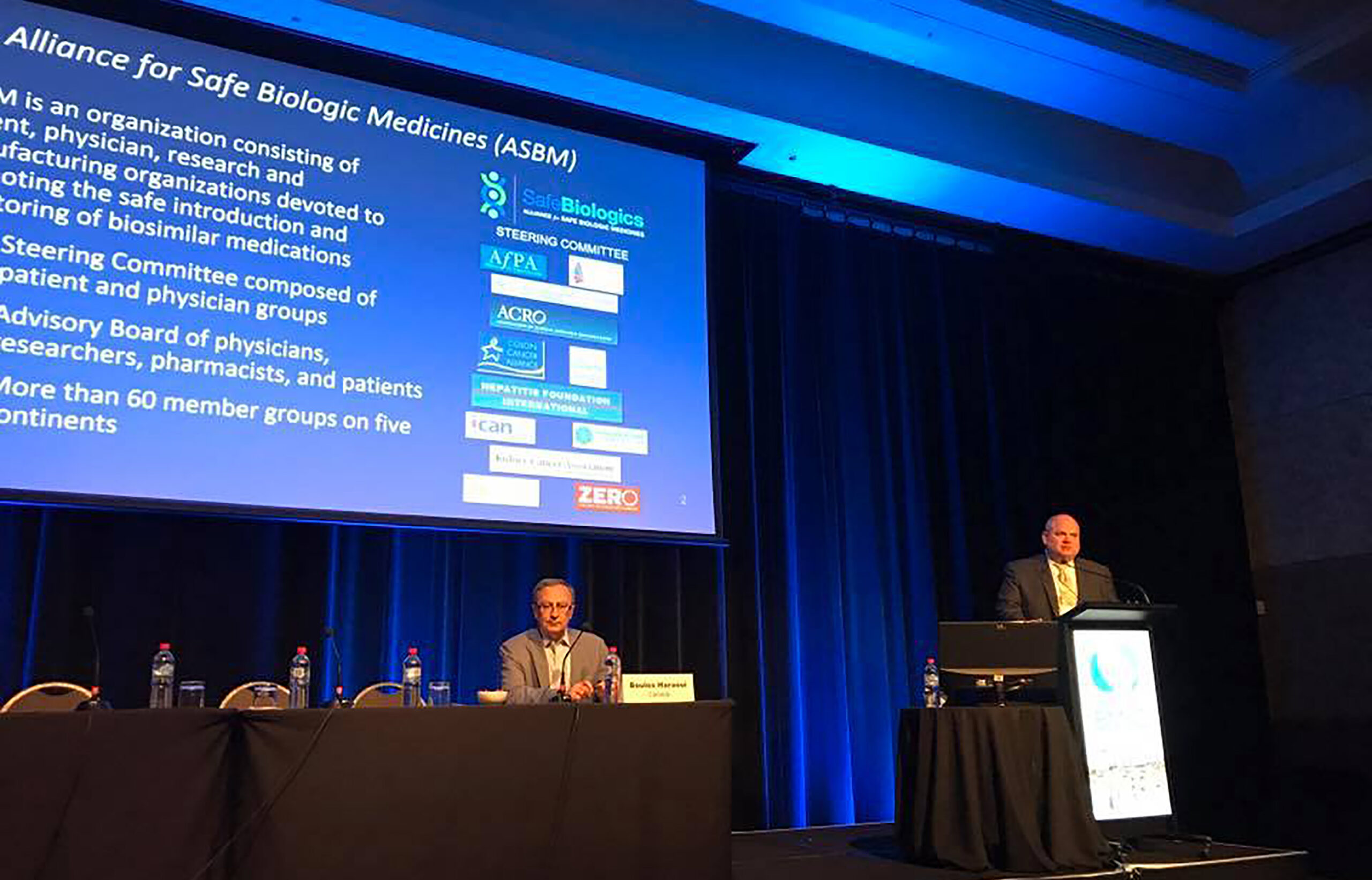At the 5th World Congress on Controversies, Debates & Consensus in Bone, Muscle & Joint Diseases (BMJD), ASBM Steering Committee member Andrew Spiegel, Executive Director of the Global Colon Cancer Association, recently presented, “Real World Considerations for the Use of Biosimilars in Rheumatology: What do Australian Physicians Think?” The conference took place on the Gold Coast of Australia, August 31st through September 3rd.
Over the past year since the ASBM Australian survey was conducted, ASBM has attended many conferences and hosted a variety of meetings to relay these specific data findings – including with members of the Australian Department of Health, Therapeutic Goods Administration (TGA) and senior health ministers in Parliament.
The 5th edition of the BMJD Congress is just one such event, which aims to facilitate healthy discussion on emerging issues, and clinical and therapeutic dilemmas in the areas of osteoarthritis, rheumatoid arthritis, in amatory arthritis, pain, and other musculoskeletal diseases. At the BMJD Conference, ASBM shared a subset of data from practicing rheumatologist, which represented a fourth of total respondents.
Survey findings are consistent with what we have seen expressed publicly from Australian Rheumatologists. In February 2016, the Australian Rheumatology Association called for a robust pharmacovigilance program to be set up in order to track safety and efficacy of the infliximab biosimilar, Inflectra. In the absence of switching studies and post-market data-collection, many prescribers are defaulting to “dispense as written” (DAW), which is believed to reflect low confidence and uptake of biosimilars in Australia.
 Nearly ninety percent (89%) of Australian physicians consider it “very important” or “critical” that they are notified as to which medication is dispensed to their patient. This sentiment is shared by biologic prescribers globally.
Nearly ninety percent (89%) of Australian physicians consider it “very important” or “critical” that they are notified as to which medication is dispensed to their patient. This sentiment is shared by biologic prescribers globally.
ASBM survey data also pointed to the fact that Australian prescribers overwhelmingly (76%) support the TGA issuing distinct naming for all biologics, including biosimilars.
As regulators seek to bring the health and economic benefits of biosimilars to patients, stated Mr. Spiegel, “building physician confidence is critical to the success of these medicines.” The bottom line is prescribers of biologic — no matter what their specialty — want to see true data demonstrating that substitution can occur without loss of safety and efficacy for the protection of their patients.”
View Mr. Spiegel’s presentation here.
